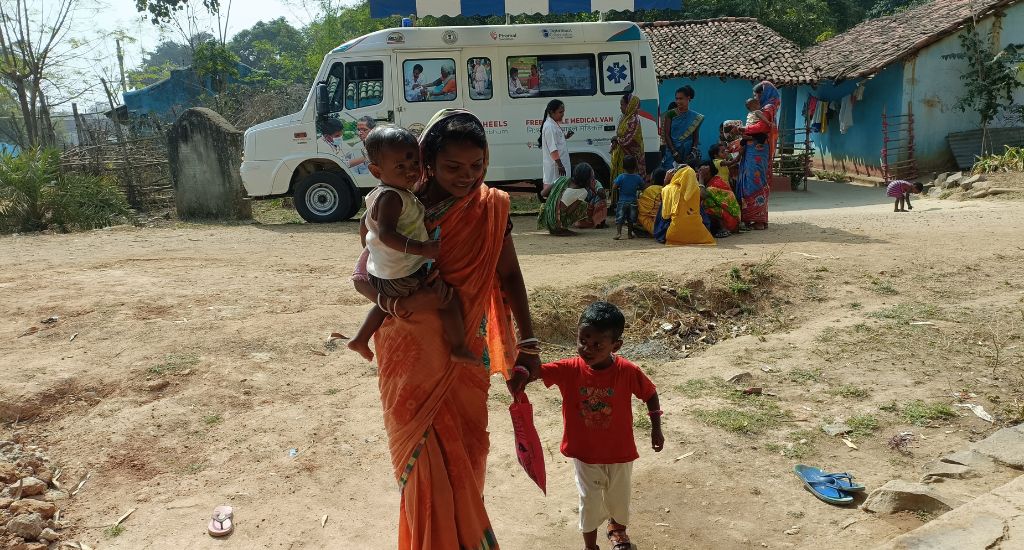
Mobile medical units going a long way in Jharkhand
In the remote villages of Jharkhand where communities lack healthcare services, mobile medical units that offer free consultations, treatment and referrals are improving people’s health.

In the remote villages of Jharkhand where communities lack healthcare services, mobile medical units that offer free consultations, treatment and referrals are improving people’s health.
A spinal cord injury had left Budhan Singh Kayam, a 63-year-old resident of Nugri village in Jharkhand’s Goilkera block, confined to his bed for the past one year. He couldn’t work to support his family. Financial constraints forced him to discontinue treatment at Chaibasa Sadar Hospital. He felt that the door to better health was closed for him.
But that was a few months back.
When Kayam came to know of the free health checkups being organised in his village, it seemed like a dream-come-true moment to him.
“The door that had been closed for long finally opened for me,” he said.
Kayam paid a visit to the camp, where Zakir Hussain, the medical officer, examined and diagnosed his issues.
Such doorstep treatments are now improving the health and lives of tribal people like him in remote villages of Jharkhand.
West Singhbhum or Pashchimi Singhbhum is a district with a predominant tribal population. According to Census 2011, around 65 percent of the total population is tribal, belonging to diverse indigenous communities inhabiting the hilly areas and deep forests.
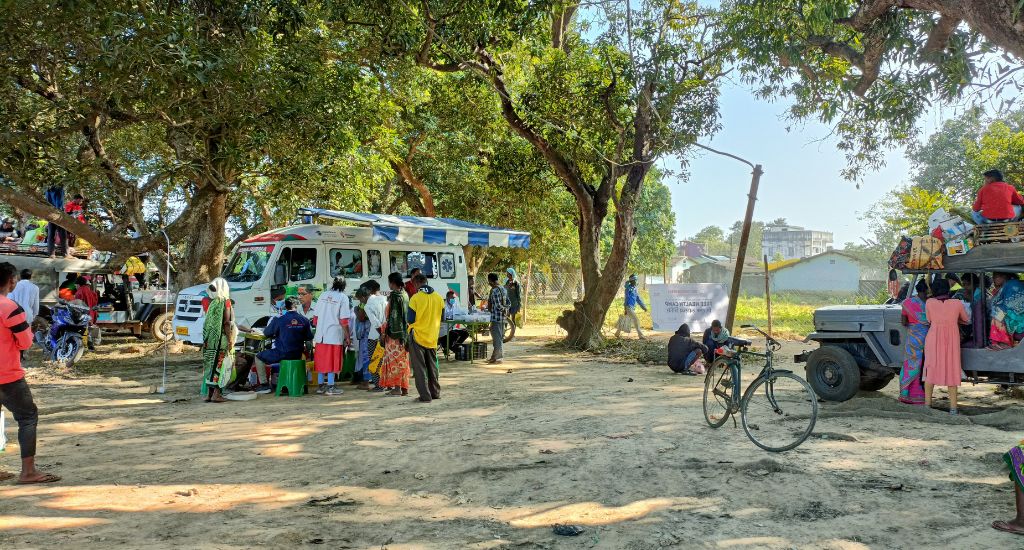
As many of the rural areas are underserved when it comes to healthcare, the district decided to extend medical services at people’s doorstep. The district administration started the mobile medical unit (MMU) to make healthcare accessible to communities in remote and hilly areas.
The mobile medical units are a result of a collaborative initiative between the district administration and the District Mineral Foundation Trust, besides The Hans Foundation and Piramal Swasthya, both non-governmental organisations. These facilities provide general outpatient consultation and primary healthcare services.
The main objective of the MMU project is to provide mobile healthcare services in 200 pre-identified villages of West Singhbhum district where access to healthcare services is inadequate.
It involves regular outpatient clinics to be set up by healthcare personnel at the villages. They provide diagnosis and counselling services, and prescribe and dispense medicines on the spot for common ailments and referral to higher health facilities for other cases.
Also Read: Weekly markets bring healthcare closer to Chhattisgarh tribals
Along with providing diagnosis and treatment, the MMU teams educate the community to build awareness about preventive healthcare. The villagers are told about infection prevention and control of communicable and non-communicable diseases, nutrition, sanitation, hygiene, etc., in order to put the impetus on preventive healthcare and improving villagers’ health-seeking behaviour.
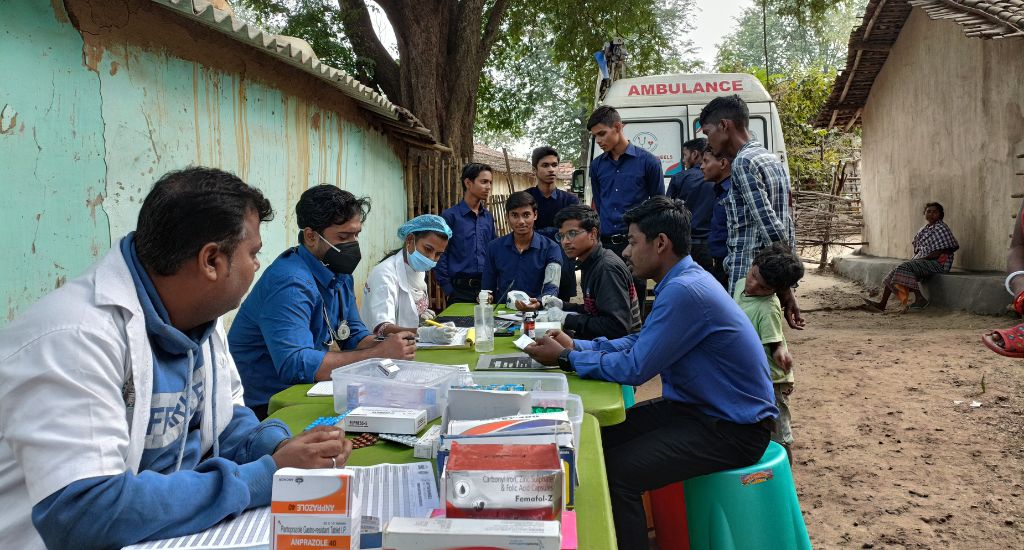
In addition, the MMU teams integrate patients into existing social services and healthcare systems through referrals. All the MMUs are equipped with GPS tracking devices, and the teams use a mobile-based reporting system and management information system. Real-time data collection and synchronisation through a web-based MMU application helps them monitor, plan and manage the work.
The MMU teams work through challenges such as difficult terrain, which affects the mobility of the vehicles, and left-wing extremism. Also, due to lack of awareness, the villagers are generally apprehensive about contemporary healthcare. But the personnel liaison with the communities to alleviate their apprehensions.
Currently one MMU serves each of the 10 blocks in the district: Jhinkpani, Khuntpani, Tonto, Tantnagar, Manjhari, Chakradharpur, Bandgaon, Sonua, Gudri and Goilkera. Each unit travels across 20 villages every day, offering curative healthcare, laboratory and referral services along with distribution of medicines.
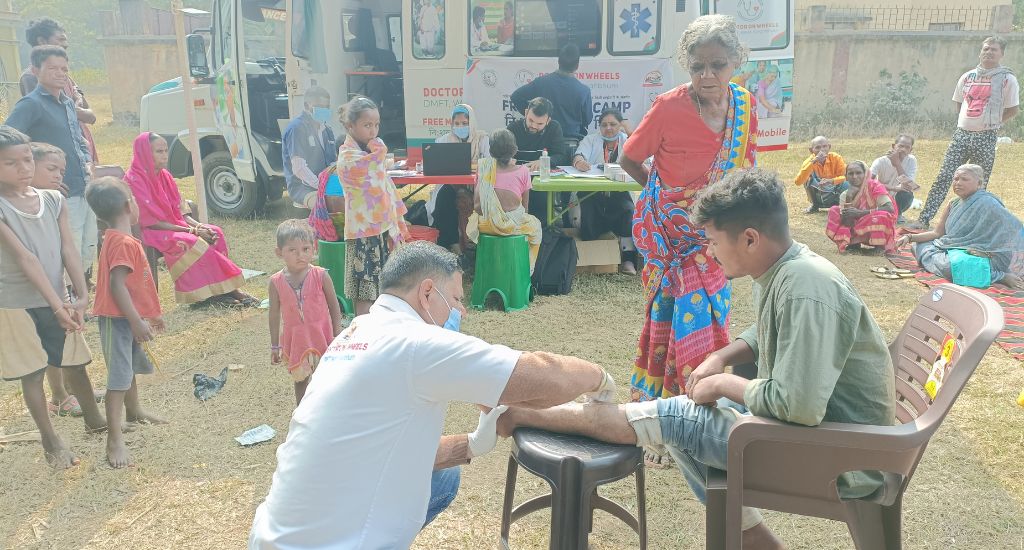
The MMUs specifically address health issues in communities residing in the remote areas who have limited access to high-impact and affordable healthcare services. Children, pregnant and lactating mothers, adolescents, those above 60 years of age and persons with disability are the target groups for these services.
The MMU project was initiated in October 2022, and within six months the teams covered all the 200 pre-identified villages. Additionally, 84 panchayats of six blocks have been covered since July 2023. The teams aim to replicate the model in the remaining eight blocks of the district.
Conducting more than 120 outpatient clinics in six months, the MMUs covered over 93,000 patients, with more than 2,600 referrals. The teams have conducted nearly 2,000 antenatal checkups and have identified 128 people for tuberculosis treatment, the numbers indicating the reach of the MMUs’ service.
Also Read: Medical access remains a challenge in rural India
Villagers benefit from this service, and as one patient said, “Our health centre is a bit far and it’s not always possible to go for health checkups. But now we get free medicine and treatment. This has been very helpful for everyone.”
The teams reach out to the villagers with the help of the panchayati raj institution members, leaders, village-level functionaries and women’s groups. This also enables community participation and contribution in the form of infrastructure for clinics, logistics and sensitisation for services. To identify the villages that need healthcare services the most, they coordinate with district and sub-district department officials and local community leaders.
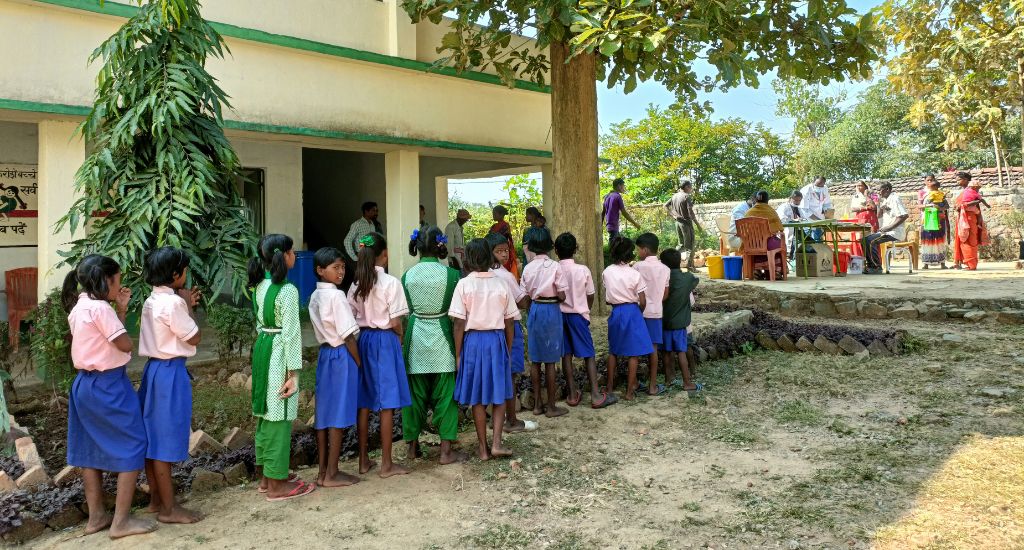
The district administration is now planning to run such mobile medical units for other healthcare services like eye care and disability-related consultation with the help of district funds. The district administration also plans to supplement the healthcare initiative with a ‘Doctor on Wheels’ project.
The lead image at the top shows a mobile medical unit conducting awareness sessions on antenatal checkups among women of a village in Jharkhand. (Photo by Abhijeet Kumar)
Abhijeet Kumar is a young development professional currently working as a Public Policy in Action Fellow at Transform Rural India Foundation in West Singhbhum district of Jharkhand.